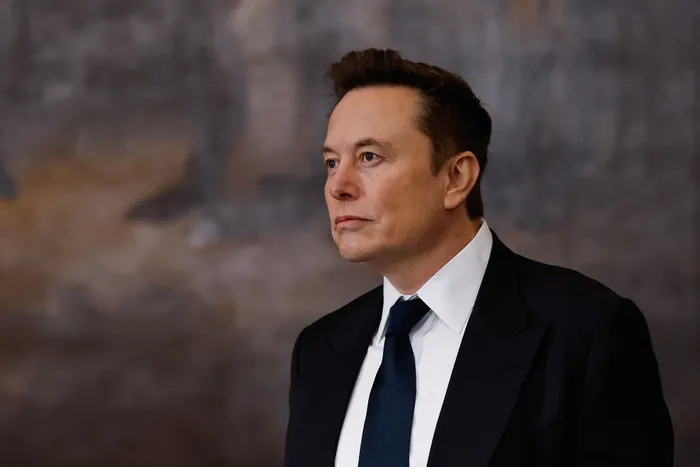DIRCO defends policy change that will enable Musk’s Starlink to operate in SA as 'in the national interest

Elon Musk. Bringing billionaire Elon Musk’s controversial satellite internet system, Starlink, into South Africa’s airspace is in the country’s national interest because it will help meet its developmental goals
Image: AFP
Bringing billionaire Elon Musk’s controversial satellite internet system, Starlink, into South Africa’s airspace is in the country’s national interest because it will help meet its developmental goals, said Deputy Minister of the Department of International Relations and Cooperation, Alvin Botes.
During a conference on illicit financial flows, mobilising domestic resources, and financing for development, hosted at SGN Grant Thornton’s offices at the end of last week, Botes said that any trade agreement would be subordinate to the Constitution and must facilitate development.
Botes also hinted at government’s policy towards trade agreements with the United States following President Cyril Ramaphosa’s meeting with Trump on May 21. He said that the county’s policies are “not subordinate to trade incentives”.
The Deputy Minister added: “We can only speak about what our constitutional imperatives are.” He explained that it was important that public debates were held as government effects changes in law when public opinion focuses on certain issues.
However, Botes also said that the United States is South Africa’s second largest trade partner as a country following China. “It would be reckless to say we don’t need the US,” he noted, speaking specifically about automotive exports.
During Ramaphosa’s meeting with Trump, which was televised, the United States President seemingly blindsided Ramaphosa by screening videos in which then EFF leader Julius Malema chanted “kill the boer, kill the farmer”.
Trump has been targeting South Africa for what he sees as genocide, while Musk has publicly stated that the country has “racist ownership laws,” which may deter him from investing here, including through Starlink.
Recent proposed changes by Minister of Communications and Digital Technologies, Solly Malatsi, that will amend current laws governing the telecoms space has caused controversy and have been viewed as paving the way for Musk, who was previously close with US President Donald Trump, to operate his satellites in South Africa.
Speaking to IOL on the sidelines of the SNG conference, Botes said trade agreements must be reconcilable with nation building. When specifically asked about Starlink, the Deputy Minister said government sought to get the best outcome for South Africans still suffering the consequences of the Apartheid era.
Malatsi has proposed that the Independent Communications Authority of South Africa (ICASA) to reconsider its regulations on ownership of licences. This would include making use of alternatives to requiring companies to be 30% owned by historically disadvantaged individuals before that entity can be awarded spectrum.
Botes pointed out that not all South Africans have access to the internet and Starlink will bridge these gaps in rural areas. A release from Statistics South Africa last week showed that the percentage of households who had access to the Internet through any other means increased from 28.0% in 2010 to 82.1% by 2024.
Malatsi was “invited” by the Portfolio Committee on Communications and Digital Technologies to explain these directives, which would essentially allow international companies to implement skills development, enterprise development, socio-economic investment, and Equity Equivalent Investment Programmes instead of ownership.
The Committee said that these directives “appear to be in contravention of the Electronic Communications Act and in favour of low earth orbit satellite provider SpaceX, which will be providing broadband services”. Space X operates Starlink.
Malatsi explained that the directive, in the works since 2024, had taken ICASA’s input into account before being published.
“The policy direction about ownership is about unlocking investment, expanding digital inclusion, and advancing transformation. South Africa needs more competition in the ICT sector to lower data costs, extend broadband to underserved areas, and cannot achieve that by abandoning our transformation goals. This policy ensures we don’t have to choose between investment and empowerment. We can do both,” said Malatsi.
In the middle of last year, ICASA said it would start consulting with industry on new licencing framework for low-earth orbit satellite services, the space in which Starlink has its satellites.
IOL Business